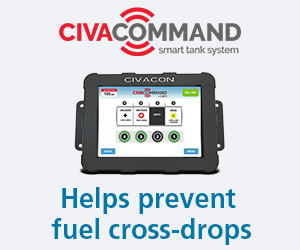The U.S. Department of Transportation’s Federal Motor Carrier Safety Administration (FMCSA) said last month it has awarded more than $70 million in grants to states and educational institutions to enhance commercial motor vehicle (CMV) safety.
“Our shared goal of a safer transportation system is a top priority,’’ said U.S. Transportation Secretary Elaine L. Chao. “These grants will further assist state and local officials in their efforts to prevent commercial motor vehicle crashes and injuries each year, and have the potential to save hundreds of lives.’’
FMCSA officials said the agency this year released:
•$41.5 million in High Priority grants to enhance states’ commercial motor vehicle safety efforts, as well as advance technological capability within states,
•$30.7 million in Commercial Driver’s License Program Implementation (CDLPI) grants to enhance efforts by states to improve the national commercial driver’s license (CDL) program, and
•$1 million in Commercial Motor Vehicle Operator Safety Training grants to nine education institutions to help train veterans for jobs as commercial bus and truck drivers.
“In addition, the department is proud to recognize the sacrifices of our nation’s heroes by providing more veterans with the opportunity to contribute to the safety of our roadways through training grants for the next generation of commercial drivers,’’ Chao said.
FMCSA’s High Priority (HP) grant program consists of HP-Commercial Motor Vehicle (HP-CMV) grants and HP-Innovative Technology Deployment (HP-ITD) grants. HP-CMV grants are designed to provide financial assistance to state commercial vehicle safety efforts, while HP-ITD grants provide financial assistance to advance the technological capability and promote the deployment of intelligent transportation system applications for CMV operations.
Enjoying our insights?
Subscribe to our newsletter to keep up with the latest industry trends and developments.
Stay Informed“Safe drivers lead to safer roadways, and safer roadways ensure that our loved ones return home at the end of their journey,’’ said FMCSA Deputy Administrator Daphne Jefferson. “These grants will help ensure that our state partners have the tools and resources they need to support FMCSA’s mission of reducing crashes, injuries, and fatalities involving large trucks and buses.”
FMCSA’s Commercial Driver’s License Program Implementation (CDLPI) grant program provides financial assistance to states to achieve compliance with FMCSA regulations concerning driver’s license standards and programs. Additionally, the CDLPI grant program provides financial assistance to other entities capable of executing national projects that aid states in their compliance efforts, which will improve the national CDL program.
The goal of the national CDL program is to reduce the number and severity of commercial motor vehicle crashes in the United States by requiring states to conduct knowledge and skills testing before issuing a CDL, maintain a complete and accurate driver history record for anyone who obtains a CDL, and impose appropriate disqualifications against any driver who violates certain offenses.
This effort is directly linked to FMCSA’s focus on reducing crashes, injuries, and fatalities involving large trucks and buses, the agency said.
FMCSA’s Commercial Motor Vehicle Operator Safety Training grant program awards grants to a variety of educational institutions that provide commercial truck and bus driving training. These include public or private colleges, universities, vocational-technical schools, post-secondary educational institutions, truck driver training schools, associations, and state and local governments, including federally recognized Native American tribal governments.
Further information is available at www.fmcsa.dot.gov/grants.
(This article was originally published in Trucking News.)



















